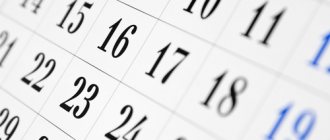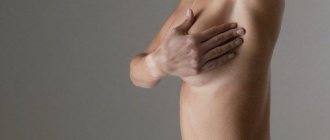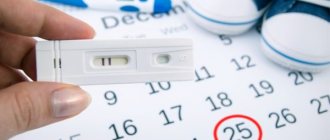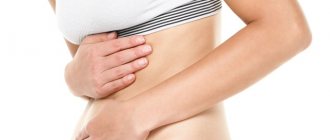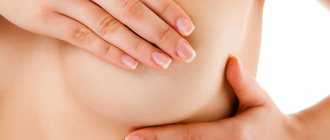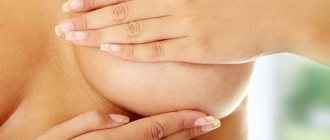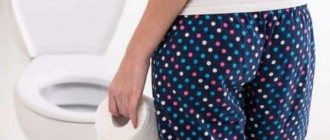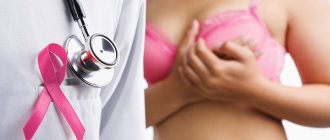Premenstrual syndrome (PMS), known to every girl, occurs a few days before menstruation. This feature of the body’s behavior is difficult to fit into a certain framework, because for every woman this syndrome occurs differently, and it also occurs: for some, 2-3 days before menstruation, for others, 10 days.
While in some women the changes are practically not noticeable, in others the symptoms of this phenomenon may be severe sweating, sudden emotional swings, and headache. In this article we will talk directly about sweating, which affects some women both before and during menstruation.
Main signs of PMS
Profuse sweating before menstruation is very rarely encountered as an independent symptom. Often such discomfort occurs during sleep. In addition to the appearance of sweat, women may experience another 150 signs indicating the imminent onset of menstruation. Most often it is swelling and psychological instability.
Main symptoms:
- slight increase in body weight;
- swelling (manifests on the face, legs, abdomen);
- enlargement of the mammary glands;
- muscle pain;
- sweating;
- discomfort in the joints;
- increased sensitivity to odors;
- itchy skin;
- increased appetite;
- nausea, vomiting;
- dizziness;
- loss of attention;
- rashes on the face;
- sudden mood swings;
- nervousness;
- insomnia;
- general weakness of the body.
An equally common symptom is decreased ability to work and fatigue. In this case, it is recommended to rest a little in a calm environment. There may also be a discharge that leads to a feeling of wetness.
If most of the symptoms appear during the daytime, sweating may also occur at night. This is one of the unpleasant moments that others can observe. The level of sweat production varies from woman to woman. Night sweats can be severe, leading to the need to change bedding.
What can cause sweating before your period?
Sweating is one of the important processes of the human body. Its main function is to protect the body from hypothermia. Sweat production increases as a result of eating burning food, stress, and increased body temperature. Sometimes it can be caused by a disease such as hyperhidrosis. Also, profuse sweating is observed in women before menstruation.
Its cause is:
- Hormonal imbalance that occurs in the body of the fairer sex is often called secondary hyperhidrosis, but it is not recommended to treat it as usual. This can only make things worse. It is during this period that progesterone and estrogen levels increase significantly. Hormonal fluctuations are especially noticeable at night and can be observed until the first day of menstruation.
- Increased body temperature can also lead to excessive sweating. During PMS, it is caused by a sharp change in the amount of hormones, which cause fluctuations in thermoregulation.
- Hormonal changes in temperature cause hyperactivity of the sweat glands. This is observed only at night.
The acute course of PMS, which is accompanied by sweating, is influenced by the woman’s age, low physical activity, sedentary lifestyle, and poor diet. According to studies conducted by American scientists, older women most often suffer from such discomfort.
Treatment should be started during PMS only if the cause of severe sweat production has been accurately determined.
How to eat to avoid sweating
And this is a really important aspect. Women, like men, however, often sin with the love of eating tasty and plentiful meals at night. For some time, this habit does not result in problems. But at some point it will definitely lead to obesity, digestive problems, insomnia and night sweats. If you drink a glass of kefir at night or eat an apple, nothing like that will happen.
High sweating definitely follows alcoholic libations. Moreover, it is not limited only to night time. Having drunk a fair amount of strong alcohol the night before, you will feel like you are sweating a lot in the morning.
You should also avoid fatty, spicy, hot, smoked and pickled foods in the evening. This is not the best food for the gastrointestinal tract, and it causes sweating at any time of the day, but such an evening meal is especially fraught with increased sweating.
Do I need to treat?
You should contact a gynecologist if PMS is painful, especially with severe sweating at night. You should also visit a doctor when there is excessive sweating and swelling of the legs. Such symptoms may indicate pregnancy or a hormonal disorder.
If the sweating is slight, and the abdominal pain is relieved by a regular No-shpa tablet, you should not go to the doctor. Such discomfort will disappear on its own in a few days.
To make PMS a little easier, you should follow these rules:
- Body hygiene. You need to take a shower every day. If sweating is severe - twice a day. It is advisable to start with warm water and end with cool water. During this period, a contrast shower has a good effect on a woman’s body.
- Physical exercise. You don't have to go to the gym for this. The best option would be yoga and Chinese gymnastics. Thanks to such exercises, blood circulation increases and sweat production is normalized. Yoga can also balance a woman’s mental state.
- Natural clothes. Synthetics do not allow the body to “breathe”, creating a “greenhouse” effect. Synthetic fabrics will only increase sweat production, so it is better to wear linen and cotton clothes.
- Warm food. During PMS, it is not recommended to take hot food and tea. All dishes must be warm. It is recommended to eat only in small portions. Dinner should be at least four hours before bedtime.
- Herbal infusions. Some types of plants can normalize the functioning of the nervous system and relieve stress.
If the recommendations presented do not provide relief, you should sound the alarm. Especially when a woman continues to wake up in profuse sweat and if the same sweating is observed during the day.
Nocturnal hyperhidrosis can be caused by the following pathologies:
- infectious diseases of the female reproductive system;
- disruption of ovarian function;
- the presence of malignant tumors;
- diabetes mellitus
By following simple rules, you can not only reduce sweating, but also improve your general condition before the “critical days.”
When to see a doctor
Sweating in diabetes Sweating in thyroid diseases
With the sudden appearance of hyperhidrosis, as well as its long-term course, consultation with a specialist is necessary. The first thing to do is to determine the level of female sex hormones. Based on the results of this study, it is possible to determine the cause of increased sweating before menstruation or exclude the participation of the reproductive system in this process.
Important
If sweating occurs during menstruation and is accompanied by severe anxiety, nervousness, and constant mood changes, it is recommended to analyze the functioning of the thyroid gland.
Prevention of sweating
Since this phenomenon is considered normal during this period, you should direct all your efforts to preventive actions. Food has a great influence on sweat production. Therefore, women should exclude hot, sweet and spicy foods from their diet.
Products that are not recommended for consumption:
- coffee, sparkling water, energy drinks, chocolate;
- oil, lard;
- pork, duck;
- citrus fruits, soaked apples;
- mayonnaise;
- seasonings (cinnamon, ginger, garlic);
- tobacco products and alcohol.
Proper nutrition is the first part of normalizing sweating. The second is aimed at restoring mental state. If the sweating is small, then it will be enough to take mild sedatives. The simplest is valerian. It can be consumed in both tablet and tincture form. It is also recommended to use herbal infusions.
Preventive measures and medications
Since the phenomenon is completely natural, almost all treatment comes down to prevention. The first step is to focus your efforts on maintaining enhanced hygiene during the PMS period. Dermatologists recommend showering at least once a day and after any physical activity.
In addition to following a balanced diet, you should exclude foods that are too spicy, rich in spices, hot or sweet from your menu. Due to increased sensitivity to all irritating factors, they can cause sweating almost immediately after consumption.
Another part of the preventive actions is aimed at normalizing the functioning of the nervous system. But I would immediately like to point out that we strongly do not recommend taking serious sedatives if you do not experience any disturbances in its functioning. And in general, only a doctor can prescribe them.
Sweating may be something more dangerous than a temporary phenomenon!!
If left untreated, sweating can develop into an unpleasant disease - hyperhidrosis. To prevent this from happening, it is important to apply all possible treatment measures in a timely manner. Find out details{amp}gt;{amp}gt;{amp}gt;
To normalize light sweating during menstruation, it is enough to take light sedatives, such as valerian tincture, lemon balm or mint tea. Long walks in the fresh air, yoga and physical activity will also be effective.
Why does the body “burn” before menstruation?
PMS is often accompanied by a feeling of heat. Especially if it manifests itself as redness of the face. Such a feeling can cause awkwardness in society and a kind of discomfort.
Important! Prolonged activity may cause facial flushing.
The body begins to “burn” a few days before the start of menstruation. The reason for this is hormonal changes.
The following psychological and physiological factors can cause facial redness:
- depression;
- stress;
- feeling of shame;
- experiences;
- feeling scared;
- fluctuations in blood pressure.
During a period of fear, a woman experiences a surge of adrenaline, which can lead to an unpleasant feeling. Rage and discontent can also negatively affect the nervous system. Therefore, it is these factors that cause redness of the skin, especially on the face.
Quite often, women complain that two or three days before menstruation they feel hot. This is a normal phenomenon and may be caused by high temperature and dry air in the room or inappropriate weather conditions.
Preventing Excessive Sweat Production
Everything is standard here. To reduce sweat, pay special attention to hygiene in the days before your period and apply cold ice to the liver area. Wash with antibacterial soap and go outdoors more often. If you are breaking into a sweat during an important meeting, concentrate on the task and do not catastrophize your physiological reactions.
Don't overheat. Wear clothes made from natural fabrics that allow your skin to breathe. Engage in moderate physical activity. Dress so that if you sweat, you can take off some of your clothes.
What can you eat during PMS?
Nutrition plays an important role. This is due to the fact that when glucose levels are low, the hormone progesterone cannot fully bind to cell membranes. The best foods for PMS are various cereals, breads and buns made from whole grain flour, as well as sweet fruits.
To restore the amount of useful microelements in the blood, you need to eat:
- Fermented milk products (whole milk, fresh kefir with a minimum percentage of fat, cottage cheese, homemade yogurt).
- Eggs. You can eat both chicken and quail. The yolk is considered the healthiest.
- Spices. Large amounts of calcium are present in plants such as soybeans, parsley and cabbage.
- Nuts (walnuts, peanuts, pine nuts, seed kernels). It is important that they are all raw. Beneficial vitamins disappear in fried nuts.
- Sea fish, hard cheeses, legumes.
Advice! Complex carbohydrates reduce sweating.
Taking a complex of vitamins will help alleviate the condition. You can use them not only during PMS.
It is important that the capsules contain:
- Magnesium. This component acts as a muscle relaxant. Magnesium normalizes blood sugar. During the period of premenstrual syndrome, it will be indispensable for those women who suffer from severe headaches, sudden mood swings and swelling of the limbs.
- AT 6. This vitamin, together with magnesium, can have a beneficial effect on a woman’s entire body. It reduces the negative effects of excess estrogen.
- Zinc. This microelement is simply necessary. Its deficiency can negatively affect the condition of pregnant women. A sufficient amount of zinc in the blood can reduce abdominal pain, cramps and dysmenorrhea.
- D. This microelement restores the protective forces of the female body. Thanks to it, the required amount of calcium in the blood is maintained. Vitamin D also helps normalize the menstrual cycle. With the help of this microelement, calcium and potassium are absorbed, which are responsible for the functioning of muscle mass and the nervous system.
- Calcium. The microelement takes part in all reactions that are responsible for blood clotting. Calcium also helps activate many factors in the body. It is often prescribed for heavy periods in order to restore blood loss.
- Plant iron (non-heme). High iron levels help reduce pain during PMS. Symptom relief occurs as a result of an increase in a substance called serotonin in the brain.
What will help at home?
You can alleviate the condition during PMS with the help of traditional medicine recipes: they can reduce symptoms and also restore the functioning of the nervous system.
Oak bark infusion
This is one of the effective methods. You can buy the bark at a pharmacy or collect it yourself.
To make an infusion, you need:
- glass of raw materials;
- boiling water – 2 liters;
- deep saucepan (not aluminum).
If you collect the bark yourself, then you need to chop it up a little and place it in a vessel. and then pour in water and cook for 30 minutes. It is better to do this on low heat. After this, set the pan aside and let the liquid cool. Add the prepared mixture to the bath or wipe the body with it.
Important! Oak bark should be harvested in the spring.
Lemon juice
Excessive sweating before menstruation can be easily eliminated with lemon. To do this, you can use either a slice of citrus or its juice. They need to treat problem areas.
It is also recommended to use the juice together with an infusion of oak bark. To make such a remedy, you will need to prepare a mixture of bark and the juice of one lemon. For greater efficiency, it is better to heat the liquid over low heat. This mixture should be used to treat problem areas.
Chamomile decoction
This infusion works well even with smelly sweat. Chamomile is one of the inexpensive remedies that can be purchased at any pharmacy. This plant is used for bathing and as a body wash.
Required components:
- plant flowers - 9 tablespoons;
- boiling water - 3 liters.
Fill the plant with water and leave for 2 hours. This time will be enough for the product to infuse well. You can also use rose petals and walnut leaves to prepare the liquid.

